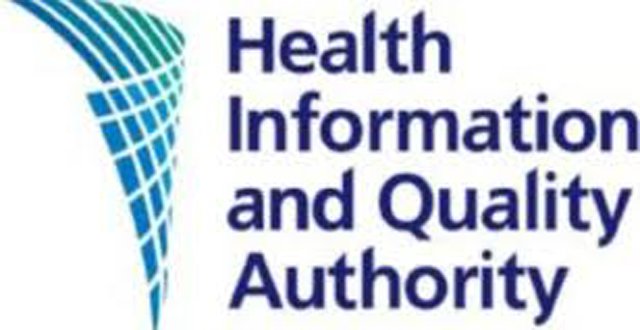Clinical oversight in most nursing homes has been “very limited”, especially in the private sector, according to a new HIQA report on the impact of the Covid-19 pandemic on nursing homes.
“The pandemic has also drawn attention to the manner in which nursing homes are integrated into community health systems,” outlined the report.
“It is now evident that there was very limited clinical oversight of most nursing homes, particularly those in the private sector. In most cases, individual residents retain their own GP or move to a GP in the area where the nursing home is located.
“This may work well for the individual, but it means there is no overarching clinical governance of the health and welfare of the centre’s resident population as a whole — as is needed in protecting residents from collective threats, such as infectious disease outbreaks.”
Nursing homes should be more closely integrated into community health programmes, with a particular need for gerontology services, states the HIQA report.
“Such improved clinical oversight would be consistent with the objectives of the Sláintecare strategy, which advocates for more integrated care systems and the alignment of governance throughout the patient care pathway.”
“To complement the patient pathway model, consideration should be also given to an integrated care records system. This would ensure that health professionals would have access to up-to-date information related to residents care needs to ensure the best possible care.
“It may also be necessary to review and enhance staff skills and skills-mix to ensure that nursing homes have access to enhanced nursing staff as well as advanced nurse practitioners, such as those skilled in infection prevention and control or care of the elderly. The regulations governing nursing homes also need to be strengthened. It is generally good practice to regularly review regulations to ensure that they are effective, clear and are achieving their goals.
“The current regulations for nursing homes have been in place since 2013 and HIQA has previously called for their review and improvement. There is great potential to strengthen the regulations around important issues such as staffing levels, risk management, premises, governance and infection prevention and control. Furthermore, the regulations should be reformed to bring about a greater emphasis on a human rights-based approach to care.”
HIQA said that throughout the public health emergency, it has continued to regulate nursing homes.
“In line with international best practice, on-site inspections were temporarily suspended to prevent the spread of infection amongst nursing homes; however, HIQA remained in regular contact with the providers and managers of centres to monitor their ability to protect residents in the event of an outbreak of Covid-19.
“A number of initiatives were introduced, such as HIQA’s Infection Prevention and Control Hub, the resumption of a programme of risk-based inspections, and the expedition of applications to open new nursing home beds.
“Over the past few months, HIQA inspectors and staff have spoken to many people directly affected by the pandemic. Residents and staff told us their stories on inspection and also made contact with us by telephone or email in order to raise concerns or ask questions.”
HIQA’s Chief Inspector of Social Services and Director of Regulation, Ms Mary Dunnion said: “Covid-19 has deeply affected many people and the fallout will be with us for a considerable period of time. Our sympathies go to all those who have lost a loved one or a friend due to the virus.
“Residents in nursing homes who spoke with inspectors expressed a range of emotions. Some feared contracting the virus and worried about their family and friends, while others felt a deep sense of isolation and loneliness as a result of the visiting restrictions. Without exception, residents were deeply grateful to staff in nursing homes for the care they provided in extremely challenging circumstances.
“Relatives and friends of residents spoke of the worry and anxiety they felt for their loved ones. Some reported that they experienced poor communication with nursing homes, which only served to heighten their anxiety. Others raised concerns regarding the adherence to public health guidance and the appropriate use of PPE.”
Ms Dunnion continued: “Covid-19 has brought into sharp focus the need for reform of current models of care for older people in Ireland. The continued use of multi-occupancy rooms and outmoded premises in some nursing homes undoubtedly created challenges in containing the spread of infection. We must look to complementary models of care, such as homecare and assisted living, and ensure that there is improved clinical oversight in all nursing homes.
“Furthermore, the regulations governing nursing homes are outdated and must be revised to make them fit for purpose, particularly as regards governance, staffing numbers, skill-mix, and infection prevention and control. HIQA will continue to listen to the experiences of residents, relatives and staff to strive for safer, better care that focuses on the human-rights and individual needs of the person.”













Leave a Reply
You must be logged in to post a comment.